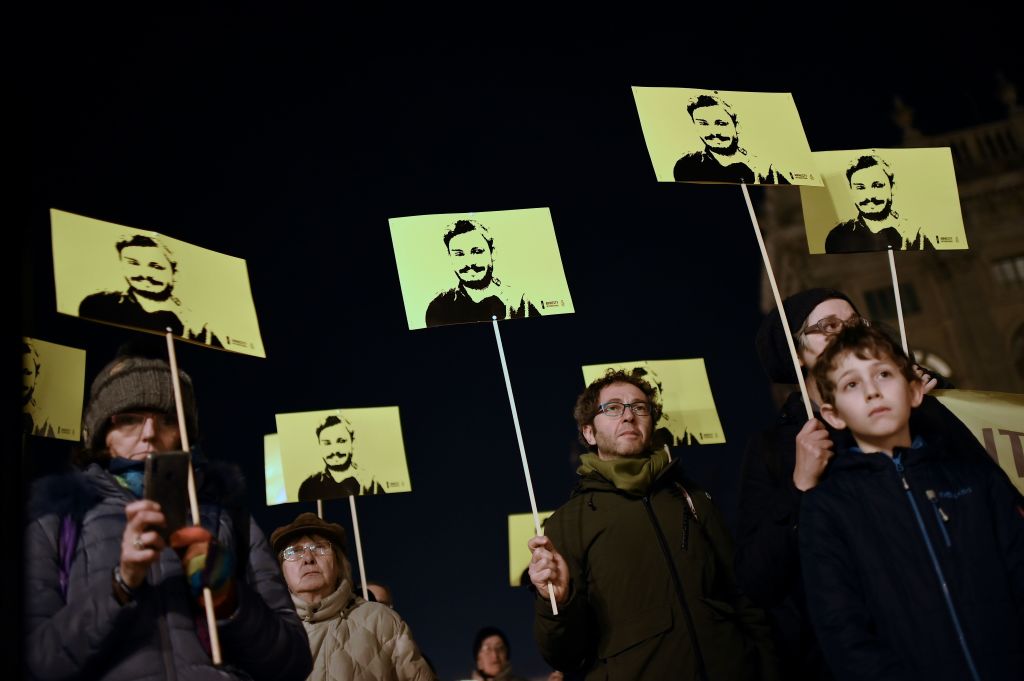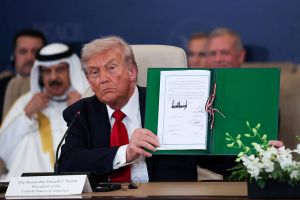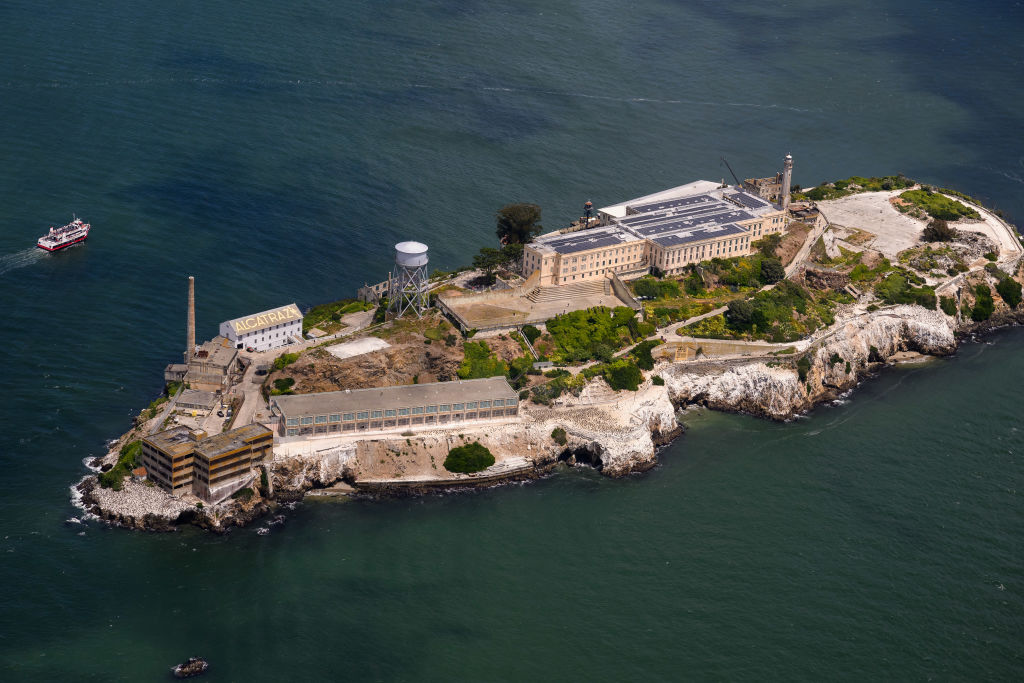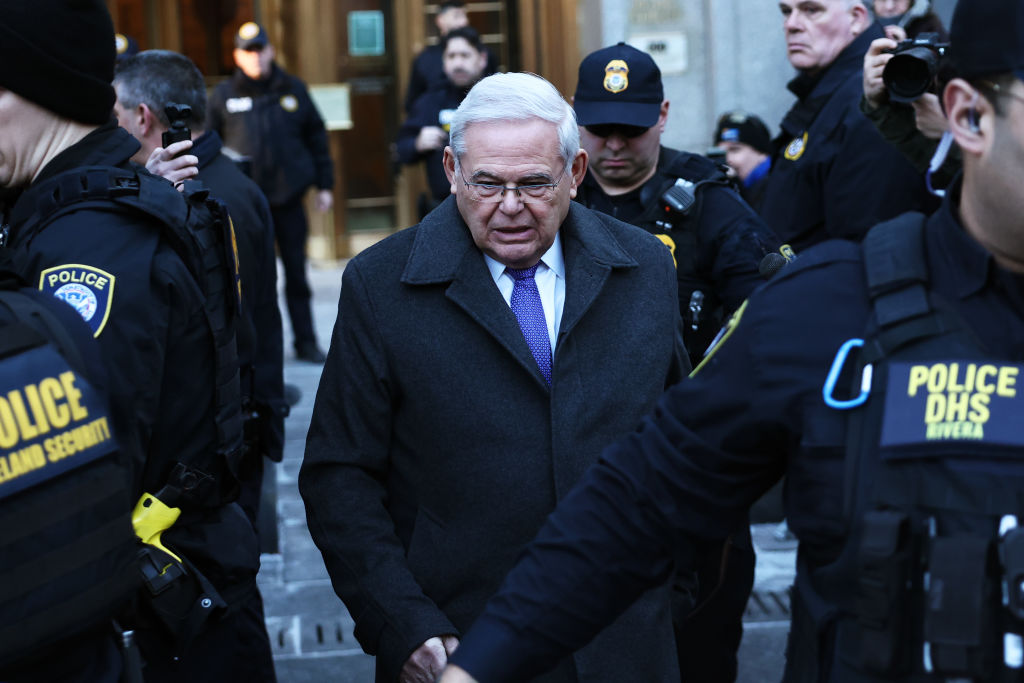History is accelerating in the Middle East once more. Nuclear scientists are dying in Iran; and again, in Egypt, the regime is cracking down on anyone who dares to criticize it.
Kareem Ennarah, the director of the criminal justice and policing unit at human rights organization, the Egyptian Initiative for Personal Rights (EIPR), was arrested on November 18 and accused of joining a terrorist group and spreading false information. Ennarah worked to shine a light on Egyptian torture, police brutality, arbitrary detention and execution; no wonder he and his colleagues had become unpopular with the authorities. But in recent months, things started to become a lot worse.
In February, his colleague Patrick Zaky was arrested on arrival at Cairo airport after a trip to Italy. On November 19, security forces arrested Gasser Abdel-Razek, EIPR’s executive director. Both men remain in prison.
On Friday, I spoke to Kareem’s British wife, Jessica Kelly. ‘We were always worried this might happen’, she told me over the phone. ‘But Kareem is a very ardent believer that Egypt deserves better. He was reluctant to leave Egypt and abandon his role. Even though we were looking over our shoulders, he carried on, hoping his public role and reputation in the field of human rights field might afford him some protection.’
But the police were clearly determined to get Ennarah, who was taking a brief holiday in Dahab in the Sinai, when officers went to his home in Cairo. His neighbors told him and Ennarah began to prepare himself, and his wife. ‘We spoke that day’, says Kelly, who had earlier left Cairo to return to London. ‘We were obviously terrified, but he was calm. He told me everything would be OK, that he loved me and that he was sorry he hadn’t left Egypt sooner. He told me to carry on working and not to rush to Egypt.’
In a highly unusual move, Kelly said the head of South Sinai State Security himself arrived to arrest Ennarah. This suggests that the order to bring him in emanated from somewhere high up within the labyrinth and brutal Egyptian state security apparatus. Ennarah was taken from a restaurant and, that night, transferred to a Cairo jail.
He has since appeared for interrogation, for which he was fortunate enough to have lawyers present (other prisoners are not so lucky). He was even able to speak to them alone for around 10 minutes, and send word that he was OK, and that (unlike, according to his family, Zaky) he had not been tortured. He was remanded to custody for 15 days and will face a hearing on December 2.
Since her husband’s arrest, Kelly has been trying to organize a meeting with the British foreign secretary, Dominic Raab, though at the time of writing, after around five days, she had not yet had a response. She is also pursuing the matter through her MP Rushanara Ali of Tower Hamlets. A change.org petition she set up now has 70,000 signatories.
[special_offer]
Ennarah’s arrest came just two weeks after EIRP met, very publicly, with 13 foreign ambassadors and diplomats on November 3 to discuss human rights in Egypt. Kelly believes her husband’s arrest may be a response from the regime to something which would have caused it embarrassment. She is calling upon representatives of the 13 countries to speak out.
Beyond this, it seems that Ennarah may be another victim of wider politics. Middle Eastern political signaling is not always subtle, and the message here does seem pretty clear cut. As a new administration is set to take power in the United States in January of next year, this is a direct message from Cairo to Washington: don’t get any ideas about lecturing us on human rights.
In the meantime, Kelly continues to hope — and to organize. ‘EIPR is the last remaining human rights organization in Egypt — without it there is no accountability,’ she says. ‘And Kareem was a Chevening scholar at SOAS. He is someone Egypt should be building its future around, not locking up.’
This article was originally published onThe Spectator’s UK website.

























